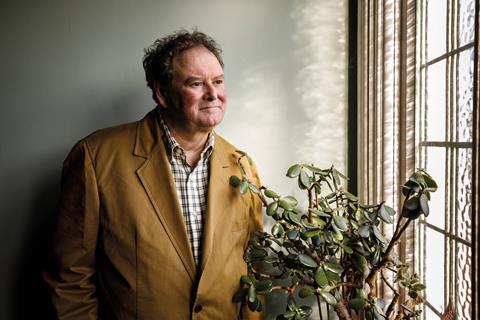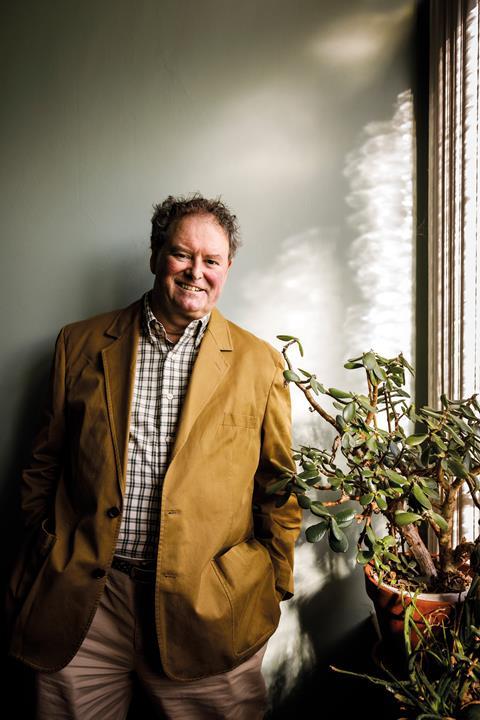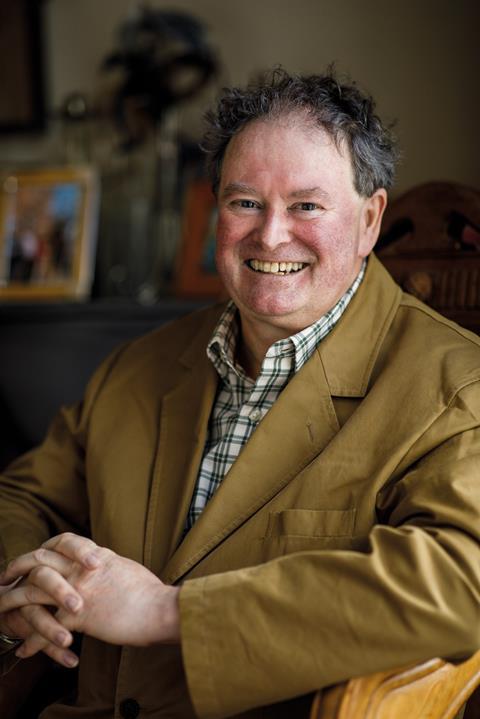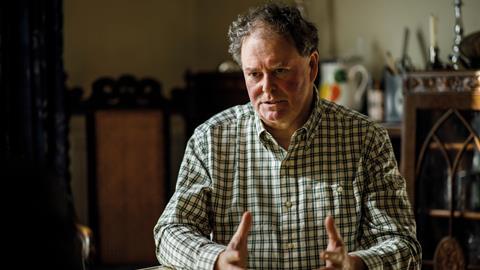Media favourite Mark Stephens reviews a career that has encompassed hit men, Tom Jones and groundbreaking human rights cases. Eduardo Reyes reports
BIOG
BORN
Windsor, grew up in Surrey
EDUCATION
Law, BA, North East London Polytechnic (now University of East London), 1977-80
ROLES
Articled clerk, then solicitor, Paul Ridout & Co (1980-82)
Founding partner, Stephens Innocent (1982-1999)
Partner, Finers Stephens Innocent (1999-2012)
Senior member, Howard Kennedy (2013-present)
Chair of governors, University of East London (2009-2017)
President, Commonwealth Lawyers Association (2013-2015)
Chair, IBA Human Rights Institute (2022-present)
KNOWN FOR
Leading headline cases for unions, the media, human rights campaigners, and families seeking justice; frequent media appearances
Arthur Scargill, Mark Stephens recalls, was ‘a fabulous client… a dream client’. He knew Scargill as the leader of the National Union of Mineworkers (NUM), and remembers a man who was ‘very clear, very precise’, and who ‘evidenced everything with documents’. The NUM president, Stephens continues, had an ‘encyclopaedic… photographic memory’, matched by a complete and well-ordered filing system for documents.
The 1984/85 miners’ strike is now viewed by some as a strategic error that played into the Conservative government’s hands, giving prime minister Margaret Thatcher the justification to tighten the laws around trade union activity. What has received less attention is the series of cases Stephens’ firm Stephens Innocent, established in 1982, took for the NUM in the aftermath.
Stephens is proud of these cases, some of which resulted in enhanced compensation and pension rights for a significant number of ex-miners. As a result of successful legal challenges to the way decisions were made on mine closures, many miners nearing the end of their careers became entitled to a full pension.
It was Stephens who ‘came up with the idea of a reasonable expectation in judicial review’, he recalls. ‘That’s why people come to me, because I’m quite inventive and creative. I don’t feel constrained by traditional notions of what’s going on.’
It was Stephens’ ‘first huge impact case… I could see what could be done with the law to better a community of individuals’. He pays tribute to John Hendy QC (now Lord Hendy), ‘silk by appointment to the NUM’, who brought him in to do these cases.
‘There were 50,000 miners… paid an extra 18 months’ salary because the legal process was delayed. They all got an extra £50,000 on their package as a consequence of the legal case… [the National Coal Board] had to pay more to… make them redundant.’
In the headlines
Mark Stephens’ headline-making cases are too numerous to list, but mention of a few gives a flavour of his varied career. He acted for the National Union of Journalists on its failed legal challenge to the ‘broadcast ban’ on Sinn Fein spokesperson voices (which applied from 1988 to 1994).
He defended Greenpeace in litigation brought by Shell to recover the Brent Spar platform in the North Sea in 1995, which Shell alleged had been illegally occupied by the environmental activists.
Stephens, paired with Keir Starmer, took the long-running ‘McLibel’ case to the European Court of Human Rights.

Julian Assange was his client from 2010-11 as Assange fought extradition proceedings (they parted ways a year before Assange skipped bail and turned up at the Ecuadorian Embassy).
He advised Zelda Perkins, former assistant to film producer Harvey Weinstein, on breaking her own non-disclosure agreement. Supreme Court presidents over the years have sent him tests cases involving unrepresented parties (‘I will be asked to put forward a brief’). The registry at the European Court of Human Rights also asks him to act in cases.
He continues to act pro bono for the family of Harry Dunn, killed in a road accident involving a car driven by American Anne Sacoolas, who returned to the US claiming diplomatic immunity and now faces a civil suit there.
Stephens was not obviously destined for the law. ‘I grew up in suburban Surrey, but we were unutterably impoverished,’ he says. ‘Myself and my sisters were the only kids in the school having free school meals and behind closed doors we lived with second-hand furniture. You know, everything we had was pretty much second-hand and hand-me-down. So, I think knowing and having, as part of your lived experience, economically challenging circumstances makes you appreciate the need for other things.’
His father was an artist, and while his art did not bring adequate income home, it did bring his friends and connections from the creative sector through the door, including leading figures from the music industry. Peter Barnes, who became the publisher of Pink Floyd and who still manages their back catalogue along with that of The Rolling Stones, was a lodger at the house at the start of his career.
Aged 16, Stephens came down to breakfast to find his father and Barnes ‘gossiping’.
‘What do you want to do, Mark?’ Barnes asked him. Stephens, who had already tried stage school, said he wanted to go into the music industry, ‘like any young man of that age would say. [Peter] said, “Well, that’s interesting, but have you ever thought about being a lawyer? You know, lawyers make all the money. I can give you all our work so you’ll have really interesting work to do.”’
The stint at stage school had equipped him for ‘being able to perform, being able to speak and engage with people’. But diagnosed with epilepsy, he was prescribed drugs with serious side-effects. ‘Literally, I pretty much slept through my A-levels and I got absolutely rubbish grades as a consequence,’ he says.

He is still in touch with Anne Bottomley, the North East London Polytechnic academic who asked him for interview. ‘She was interested in what reasonable adjustments the university would need to accommodate my epilepsy,’ he remembers. ‘I was so blown away that someone wanted to make this work for me that there was absolutely nowhere else I was going to go after that.’
Now the University of East London, ‘most of the teaching staff were Marxists or some variation thereof, and they taught us a Marxist analysis of the law, which actually, a bit like Chicago teaching an economic analysis of the law, stands you in incredibly good stead for analysing stuff. I’ve found it to be an amazingly good tool.
‘I don’t subscribe,’ he continues, ‘but it’s a great way of deconstructing things and actually getting back to the essence. That was a legacy which they left with me.’
He did a summer internship at media firm Sheridans. ‘I remember sitting there, and the Sex Pistols and Malcolm McLaren coming in to see Bernard Sheridan to consult him at the beginning of their careers. It was quite interesting and exciting.’
A second internship followed at a Crouch End firm that handled ‘heavyweight crime’ cases. He recalls lessons learned from 3 Temple Gardens barrister Robert Watson, ‘one of those old-fashioned advocates who would do a closing without notes and took great pride in that. He was eloquent and articulate and funny’. By the time the trial he followed had finished, the client had absconded, warranting a ‘wanted’ poster at tube stations. ‘He’d escaped from the prison van on the way back from the Old Bailey,’ Stephens says.
He was articled to a firm specialising in the music industry, run by name partner Paul Ridout. ‘We represented Tom Jones, Gilbert O’Sullivan, Engelbert Humperdinck, all the hot acts,’ Stephens says. But Ridout wanted to move the firm from London to Dorking.
As a result, Stephens recalls: ‘He left me the clients he had in London that didn’t want to follow him to Dorking, and I set up my own practice at 24. The Law Society gave me special dispensation to allow me to run off the cases that I had, as long as I had someone in the background.’
To take on fresh instructions, though, he needed to be in partnership with a more experienced solicitor, a Law Society requirement. The more senior solicitor he found to join with was Roslyn Innocent, who Stephens had met when they were both doing work at a legal advice centre, which gave ‘free legal advice to artists, sculptors, photographers, illustrators’.
The newly minted Stephens Innocent was doing a lot of copyright cases, including for the National Union of Journalists, which eventually instructed the firm to do all its copyright cases.
Still, ‘there wasn’t enough to keep the wolf from the door’, so Stephens also did criminal legal aid cases in the local magistrates’ court and became a local duty solicitor.
'We had a policy that we were not interested in how people paid us, we were interested in helping them solve their problems. That was first and foremost'
Innocent and Stephens were joined by Robin Fry. Like them, he did intellectual property cases, but he and Innocent also did conveyancing. The firm was instrumental in the gentrification of Wapping, acting for artists whose leases developers now had in their sights. ‘My role,’ he remembers, ‘was basically selling out the rights of the artists, the long leases, to developers; compensation for the termination of the leases. The artists then moved away, often to Hackney, to Beck Road, which became a big artist community.
‘One of the things that made us very different to other firms was partly the client base,’ Stephens continues. ‘They shared our values, but were [also] creative and innovative. We had a policy that we were not interested in how people paid us, we were interested in helping them solve their problems. That was first and foremost. If they could pay us, then that was ideal. If they were entitled to legal aid then that was good, but if we got paid in art then we got paid in art.’ He mentioned this in an interview ‘which got published, and the taxman came around and levied a tax bill for the value of the art’. He now collects art instead.
At university, Stephens met his future wife Donna. ‘She was the scientist who invented bone marrow matching techniques at the Institute of Child Health,’ he says. ‘After that she went on to start working with the first AIDS baby in the country, who had contracted AIDS while in the womb, at St Mary’s. They were interested in if there was an immunological response that they could get to help cure those kids.’
'There were queues outside shops. Everybody was desperate for hard currency, because the rouble was worth nothing. People were not being paid'
The firm’s IP practice led to the opening of a Moscow office in 1992, to which Stephens did a weekly commute. A key client was Christmas Films, which had been ‘the Soviet equivalent of Disney’. Visas were restrictive, his movements were followed, and he was required to live in ‘the Ministry of Defence hotel’ while there. ‘It was a time of great privations,’ he says. The hotel only had eggs for breakfast on Wednesdays, and then ‘only if you got down early enough.
‘There were queues outside shops. Everybody was desperate for hard currency, because the rouble was worth nothing. People were not being paid. I employed a translator who technically was still working for the government, but anyone who could get another job wasn’t required to go to work because they weren’t actually paying them.’
Moscow was transitioning not just to greater openness, but also to the organised crime that can accompany ‘shock therapy’ transition to a market economy. Then, as now, advisers could be targets.
When a contract was taken out on Stephens’ life it came to his attention when a message on his answer phone was the sound of gunfire. Two ‘very obvious thugs’ followed him and colleagues to a bar. They slipped out separately and returned to the hotel. ‘It really spooked me,’ Stephens says. ‘I decided to stop going.’
'[The police] came and taught my wife to check the car for limpet mines, which was the weapon of choice. They taught the teachers at the junior school how to look out for potential abductors'
The problem followed him home to London though. A 2am phone call from a neighbour alerted him to ‘some very odd guys outside your house, Mark’. Looking out of the window he recognised the same Moscow thugs.
Police fitted an alarm that would generate an armed response in Stephens’ house. ‘They came and they taught my wife to check the car for limpet mines, which was the weapon of choice,’ he says. ‘They taught the teachers at the junior school how to look out for potential abductors.’ The threat diminished, it is assumed, with the waning fortunes of the organised crime figure who had put the contract on Stephens’ head.
This was not the end of lucrative foreign work, which Stephens continues to this day. He describes himself as ‘the biggest or second-biggest’ introducer of work to his firm – which since a 2012 merger is Howard Kennedy.
But for a while now, he has sought to spend 30%-40% of his time on ‘pro bono or “low bono”’ work. In recent years this has included acting for the family of Harry Dunn (see box). Working with the Human Dignity Trust he took a case in Botswana ‘which succeeded in decriminalising consenting adult gay love’. Last year he went to the Bahamas to be an election observer on behalf of the Commonwealth Secretariat.

Stephens has also used positions in professional associations for campaigning. He first took an interest in Commonwealth lawyers as the family of his wife Donna, who had grown up in Jamaica, included eminent Jamaican lawyers. The connections between Commonwealth and UK law fascinated him, and in addition to instructions, he served two years as president of the Commonwealth Lawyers Association. It was a platform he used to argue for gay rights – absent in many Commonwealth jurisdictions.
In February he became co-chair of the International Bar Association’s Human Rights Institute, a position he used to criticise the death penalty as Saudi Arabia executed 81 prisoners on 15 March.
For Stephens, the start of the pandemic’s lockdown restrictions coincided with the last year of his wife’s life, with family contact restricted, as it was for all – greetings at the door shifting to seeing their children in the garden.
But the last year has seen his world expanding again. ‘In the last 12 months, I’ve done 19 international trips,’ Stephens says. That has included some trusts cases in Antigua, attending the Commonwealth Lawyers Association conference and observing elections in the Bahamas.
At the IBA, he says he has ‘some huge shoes to fill’. Past chairs of the human rights committee include international jurist Richard Goldstone, Kofi Annan and Helena Kennedy. ‘I think I’ve got the same values,’ he says. ‘We share the same values and the same concerns about human rights. I think that’s what’s recognised and why I was proposed for the position.’
Alongside advising Harry Dunn’s family as the civil case progresses in the US, Stephens is currently working with Yorkshire Cricket Club’s director Lord Patel, charged with ending the culture of institutional racism exposed by former player Azeem Rafiq. ‘I hope that we can have an impact on the entire community and make Yorkshire a club that’s open to many,’ he says.
He brings with him the memory of his own mixed-race marriage and the way that discrimination presented through the direct and indirect discriminatory actions of others. He also retains the conviction, which he acquired acting for the NUM, that the law can be used to huge effect.
‘Look at the Race Relations Act,’ he says. ‘It was an aspirational piece of legislation when it was passed, but now it’s a cultural norm, a minimum you would say. The law often acts as a catalyst for change through these kinds of things.’
Photography: Darren Filkins





































No comments yet